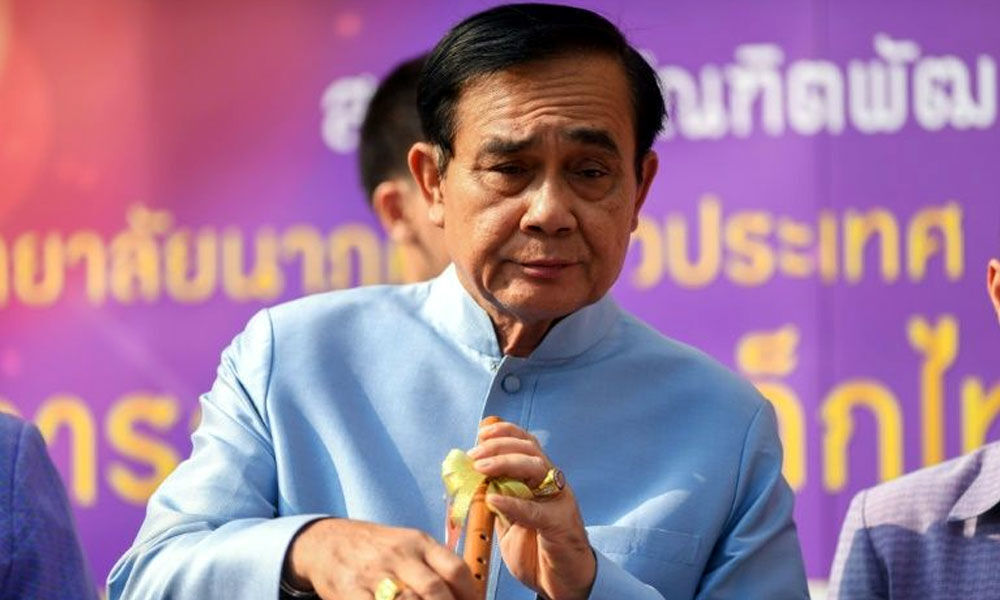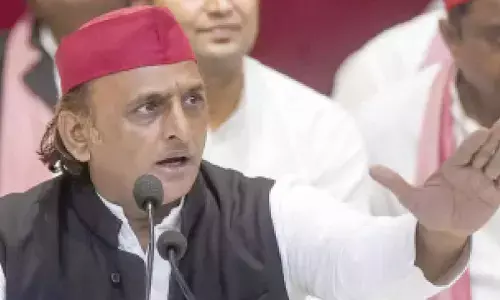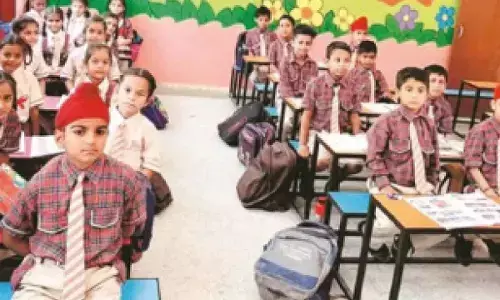Messy days ahead as Thai factions jostle to lead next government

Rival political camps jostled for position Tuesday, hoping to form a government after Thailand's first election since a coup -- a vote clouded by allegations of a bungled counting process and chicanery under junta-written rules.
Bangkok: Rival political camps jostled for position Tuesday, hoping to form a government after Thailand's first election since a coup -- a vote clouded by allegations of a bungled counting process and chicanery under junta-written rules.
The junta is in pole position to return to power as a civilian administration after preliminary results from Sunday's poll showed its proxy party had secured an unexpected majority of the popular vote. Around 7.6 million votes went to Phalang Pracharat with 94 percent of ballots tallied, the Election Commission has said. That gives it -- and its prime ministerial candidate, junta chief Prayut Chan-O-Cha -- a strong claim to legitimacy from a poll held under new junta-scripted rules. It is more than 400,000 ballots ahead of Pheu Thai, the populist party toppled from power by the 2014 coup and affiliated with self-exiled former premier Thaksin Shinawatra.
But Pheu Thai still appeared set to become the largest party in the lower house, on track for 137 constituency seats compared to Phalang Pracharat's 97, according to early figures. Experts predict days, perhaps weeks, of messy negotiations, with both parties claiming the right to form a government and confused voters wondering who will come out on top. Disqualifications of candidates and disputes over poll irregularities are likely to reshape the balance of the lower house before May 9, when final results are to be published.
As the horsetrading plays out, questions are also swirling over election irregularities, with millions of invalidated ballots, dodgy oversight of polling and bungling by election authorities that may have wildly skewed initial numbers. The Election Commission is also releasing the results in a staggered fashion, claiming "human error" when reporters pointed out that a handful of provinces returned more ballots than the voter turnout. Regional election monitor ANFREL announced Tuesday in a statement the initial ballot tabulation process was "deeply flawed", which did "further damage to the perceived integrity" and trust in results.
More than 2.8 million ballots were invalidated -- six percent of the votes -- a statistic ANFREL secretary-general Rohana Hettiarachchie called "high" compared to a usual average of is two to three per cent. Prayut, a stern army chief who engaged in increasingly bizarre publicity stunts ahead of polls as part of an image-makeover, declined to comment on the election but was in playful form as he arrived for a cabinet meeting on Tuesday. "They say if we throw the hopes and dreams in the air, it's like releasing a kite to the sky," he said cryptically in front of a group of music students who handed him a flute to play. "If you want something, you need to do it yourself," he added, in front of the assembled reporters, before walking into Government House playing the instrument.
The serious business of forming a government still lies ahead. Pheu Thai on Monday said as the majority party in the lower house it is entitled to try to put together an anti-junta coalition. That would lean on the Future Forward party, which took over five million votes, emerging from nowhere to become the third biggest party in Thai politics. The party was given impetus by the millennial vote who support its radical agenda of economic and military reform. "We are willing to form a coalition with the party that got the most seats," its telegenic figurehead Thanathorn Juangroongruangkit told reporters late Monday as the horse-trading began. Another smaller party, Bhumjaithai, the vehicle of a cabal of savvy billionaires whose allegiance shifts with the political winds, is likely to be crucial in swinging a lower house majority towards or against the junta party.
It has proposed Anutin Charnivirakul, 52, for prime minister and trailed promises of boosting rural incomes across the northeast by allowing medicinal cannabis to be grown. Seen as a rare compromise figure across a political landscape bisected by personal hatreds, he was once a senior official in a Shinawatra party. Thaksin sits at the heart of Thailand's political rupture. His parties had won all elections since 2001 with votes from poor, in the process unsettling the Bangkok-centric elite and their royalist army allies who have struck back with coups and court cases. On Monday he told AFP in Hong Kong he believed the polls were "rigged" and riddled with "irregularities."














